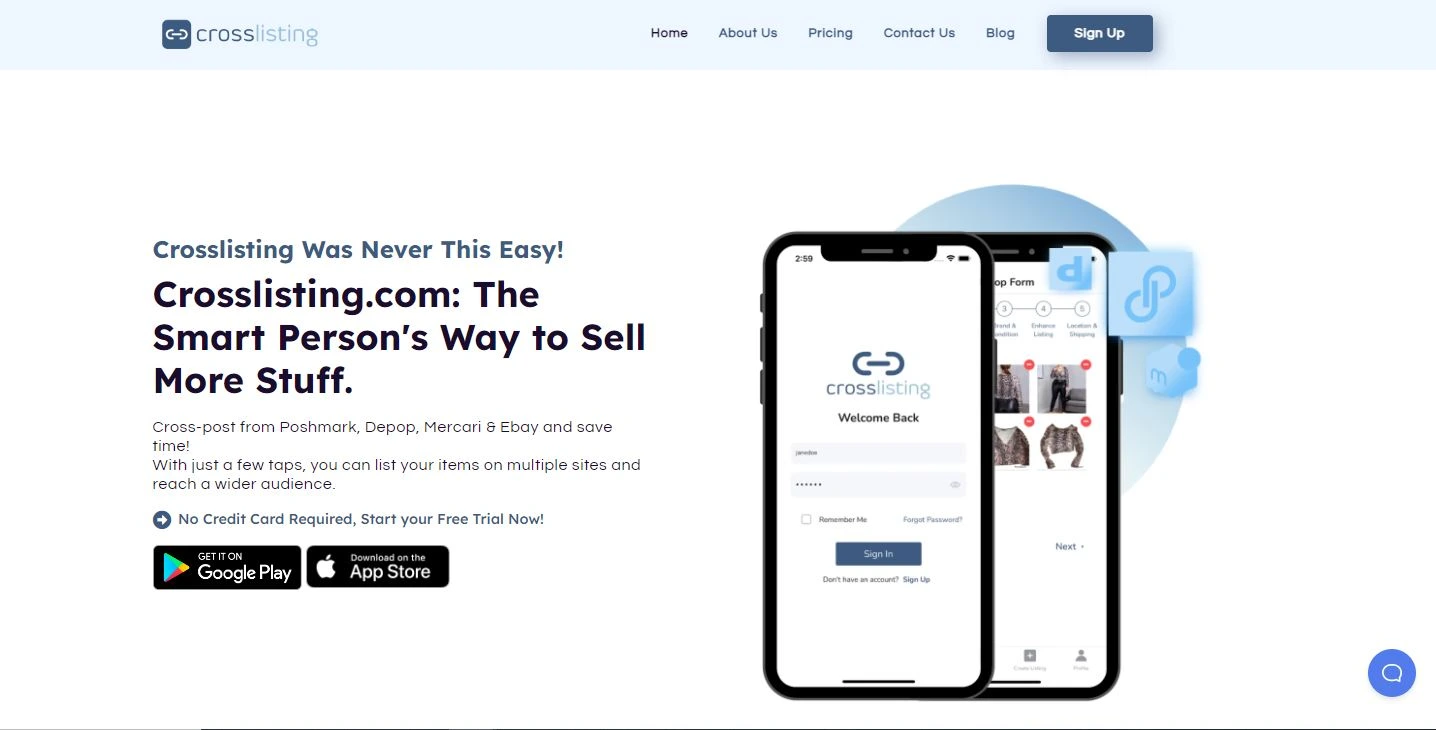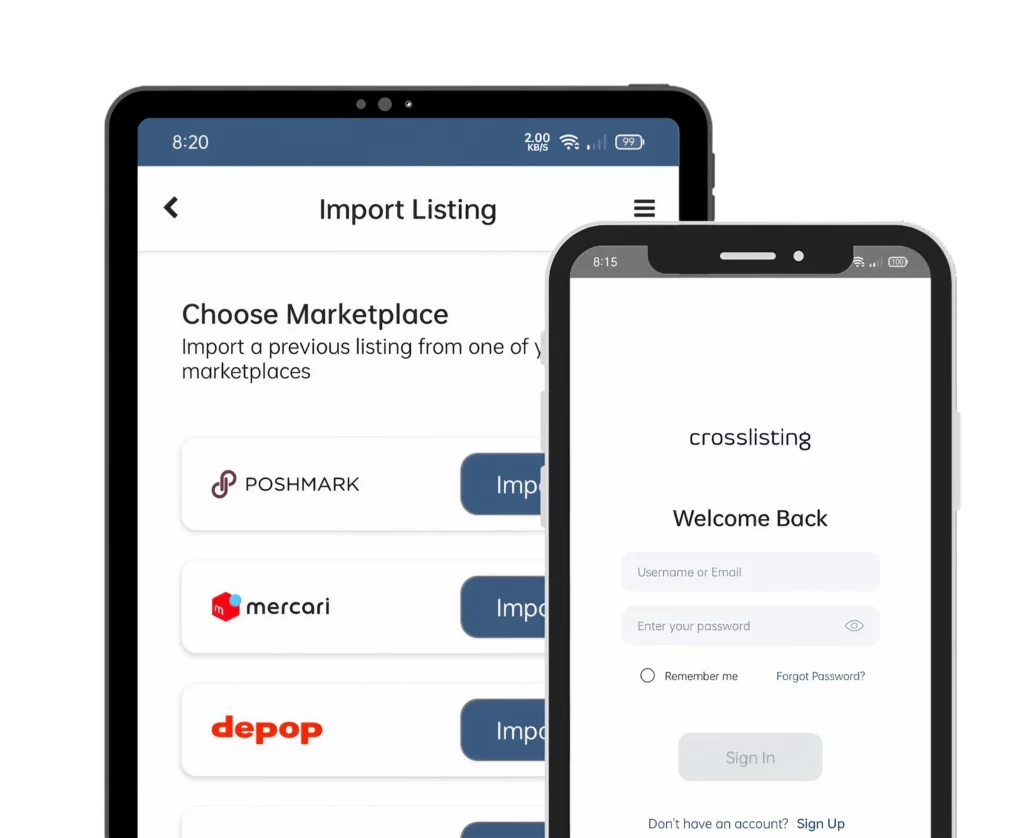6 Proven Brand Building Strategies for Resellers

In today’s dynamic business landscape, where competition is fierce and consumer preferences constantly evolve, brand building has emerged as a pivotal factor in the success of online resellers.
No matter what online platform you are selling on, crafting a compelling and memorable brand identity can set you apart from the crowd and help foster customer loyalty.
So in this blog, we will reveal to you 6 proven brand building strategies for resellers. From creating a memorable brand name and logo to crosslisting on various marketplaces, we’ll explore actionable strategies that can elevate your reselling venture into a trusted and recognizable brand. So let’s start:
6 Proven Brand Building Strategies for Resellers in 2023
1- Define Your Niche and Value Proposition
Defining your niche involves choosing a specific segment of products within a broader category. This selection should be based on careful market research and analysis.
Consider factors such as market demand, competition, and your own expertise. By focusing on a particular niche, you position yourself as a leader in that niche and that will help you build credibility and trust with customers.
At the same time, thorough research is also important to identify gaps in the market and understand your target audience’s needs and preferences.
Research trends, consumer behavior, and competitor offerings to uncover opportunities for differentiation. Utilize tools like keyword research, competitor analysis, and social media listening to gather insights that can guide your niche selection and value proposition.
Once you’ve chosen your reselling niche, develop a clear value proposition that sets you apart from competitors. Highlight what makes your products unique and how they address the needs or pain points of your target customers.
2- Create a Memorable Brand Name and Logo
You can’t make a brand without having elements that can make your brand recognizable and memorable. Hence, to build a strong brand presence you must create a memorable brand name and logo.
These elements serve as the foundation upon which the rest of the branding strategy is built. They represent the reseller’s identity, values, and offerings, making it essential to approach their creation with careful consideration.
When crafting a brand name, simplicity, and distinctiveness are key. A memorable name should be easy for customers to recall and associate with the products that it’s offering.
It should also be unique to avoid confusion with competitors. Utilizing puns, alliteration, or other creative wordplay can add a touch of playfulness and intrigue, making the brand name more engaging and memorable.
Once the brand name is established, designing an impactful logo becomes paramount. A logo is the visual representation of the brand, and it should encapsulate the essence of the business.
Simplicity will remain crucial here as well, as a cluttered or overly complex logo may fail to leave a lasting impression on potential customers. It should be scalable and look appealing across different platforms and mediums, ensuring consistency in its presentation.
Color choice also plays a vital role in logo design. Different colors evoke specific emotions and associations, and the chosen palette should align with the brand’s identity and target audience.
For instance, vibrant and youthful colors might be suitable for a brand targeting a younger demographic, while sophisticated and muted tones may appeal to a more mature audience.
Regardless of the colors chosen, they should complement the overall aesthetics of the brand and reinforce the message it aims to convey.
3- Interact With Your Followers & Buyers Regularly
While having a memorable brand name and logo is essential, it is equally important to establish a meaningful connection with your followers and buyers.
One proven brand building strategy for marketplace resellers is to interact with their audience regularly. By engaging with your followers and customers, you can foster loyalty, trust, and a sense of community around your brand.
Utilize the social aspect of online marketplaces like Poshmark, ThreadUp, and Mercari to engage with your audience consistently by responding to buyers’ messages, comments, and inquiries.
Moreover, actively participate in discussions and showcase the human side of your brand. By being approachable and responsive, you not only address customer queries but also demonstrate that you value their opinions and feedback.
4- Build A Community Around Your Brand
Building a community around your brand remains one of the most potent strategies for online resellers to establish a strong and enduring presence in the highly competitive e-commerce landscape.
A thriving brand community can foster a sense of belonging and loyalty among customers, leading to increased brand advocacy, repeat business, and positive word-of-mouth referrals.
User-generated content (UGC) plays a pivotal role in building a brand community. Encouraging customers to share their experiences, testimonials, and photos featuring the products helps create a sense of authenticity and trust.
Resellers can also showcase UGC on their website, marketplace account, and social media platforms, giving customers a chance to be featured, which, in turn, motivates others to engage with the brand.
Partnerships and collaborations with like-minded brands and influencers can also significantly contribute to brand community growth.
These collaborations provide opportunities for cross-promotion and tapping into each other’s audiences, expanding the brand’s reach and visibility within the community.
5- Crosslisting
Crosslisting has emerged as a powerful tool for marketplace resellers looking to expand their reach and establish themselves as reputable players in the online marketplace ecosystem.
This strategy involves listing products on multiple online marketplaces, effectively multiplying the visibility and potential customer base for a reseller’s offerings.
One of the key benefits of crosslisting is that it gives online resellers the ability to tap into diverse customer demographics and market segments.
Different marketplaces attract distinct audiences with varying preferences, behaviors, and buying habits. By strategically placing their products on various platforms, resellers can tailor their marketing efforts to cater to these unique segments, increasing the likelihood of capturing a wider customer base.
For instance, a product that appeals to a younger demographic might find success on a trendy, fashion-oriented marketplace, while the same product could attract a different set of customers on a platform known for its Gen Z user base.
Moreover, crosslisting enhances a reseller’s brand visibility and recognition. As products appear on multiple marketplaces, consumers are more likely to encounter the brand across different contexts, which contributes to brand recall and establishes a sense of familiarity.
This repeated exposure fosters trust and credibility, two critical components for building a strong brand. Customers are more likely to make a purchase from a brand they recognize and trust, which underscores the significance of crosslisting as a brand-building strategy.
As an online reseller, you should know about the Crosslisting app that enables you to crosspost your listings from one marketplace to various other online marketplaces with just a few taps.
The Crosslisting app supports some of the popular online marketplaces like Poshmark, eBay, Depop, and Mercari. You just need to integrate your marketplace accounts with the app and do crossposting in seconds.
6- Use Social Media to Promote Your Brand
Social media platforms have grown exponentially in the last decade and are continuing to grow in this decade as well, offering unparalleled opportunities for businesses to establish and expand their presence.
Leveraging social media effectively can provide online resellers with a competitive advantage and a unique avenue to connect with potential customers.
One of the key benefits of using social media for brand promotion is its extensive reach. Platforms like Facebook, Instagram, Pinterest, and TikTok have billions of active users, presenting a vast audience for marketplace resellers to tap into.
By creating engaging and shareable content, resellers can increase brand visibility and attract potential customers who may not have come across their products otherwise.
Moreover, social media offers a cost-effective alternative to traditional advertising methods. Paid advertising on social media platforms like TikTok and Instagram enables resellers to target specific audiences based on interests, demographics, and behavior. This ensures that their marketing efforts are directed toward those that are most likely to convert.
This targeted approach helps optimize ad spending and ensures a higher return on investment (ROI) for brand building campaigns.
To succeed in using social media for brand promotion, marketplace resellers must also stay updated on the latest trends and best practices in social media marketing.
Remember, Social media algorithms change frequently, and understanding how to adapt to these changes can significantly impact your brand’s visibility and performance on these platforms.
Final Words:
By using the 6 proven brand building strategies for resellers that we discussed above, you can establish a strong brand presence, differentiate yourself in the market, and create a loyal customer base.
Remember that brand building is an ongoing process that requires consistency, authenticity, and a genuine focus on delivering value to your customers.













Leave a Reply